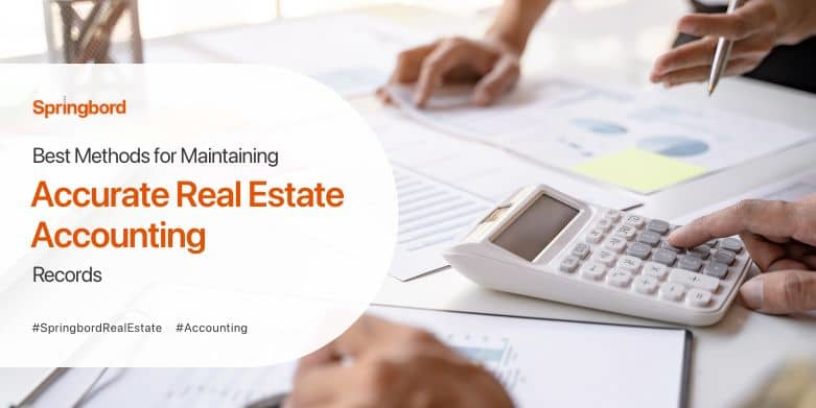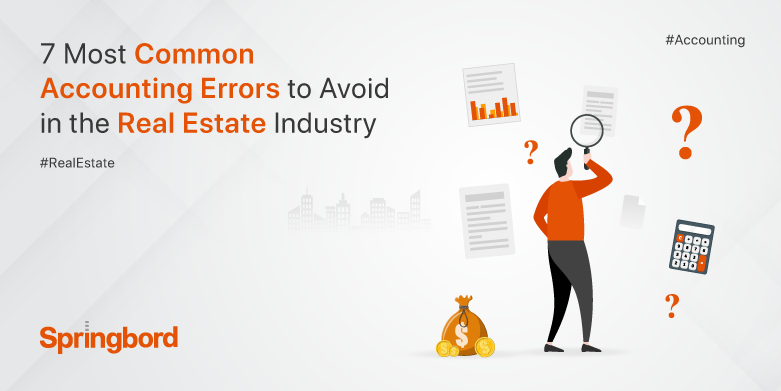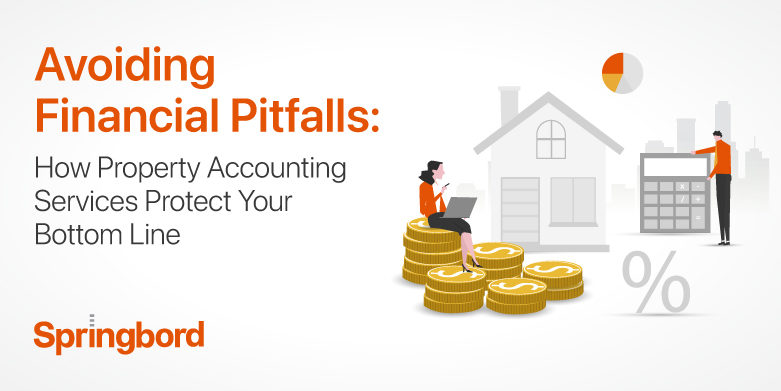 Read time 2 min
Read time 2 minAs a real estate company, keeping accurate accounting records is crucial to your success. Accurate financial statements provide insights into your business operations and help you make informed decisions about where to invest and grow.
However, real estate accounting can be complicated, and without proper guidance, it’s easy to make mistakes that could lead to costly consequences.
In this article, we will discuss some best practices to follow in order to maintain proper real estate accounting records.
What are Real Estate Accounting Records?
Real estate accounting records are financial documents that track the income and expenses of a real estate business. These records include everything from rent payments and property maintenance costs to taxes and mortgage payments. Accurate and detailed accounting records are essential for making informed business decisions, preparing financial statements, and complying with tax regulations.
Why Accurate Accounting Records Matter in Real Estate
Real estate accounting is unique because of the significant investments involved. Real estate assets often represent a considerable portion of a company’s balance sheet, making it essential to maintain accurate records of these assets’ value and performance. Additionally, real estate accounting requires knowledge of various accounting principles and tax laws, making it challenging for non-accounting professionals to manage.
Inaccurate accounting records can have significant consequences for real estate companies. Poor financial reporting can lead to incorrect valuations, which can ultimately impact a company’s ability to secure financing or attract investors. Additionally, improper accounting practices can lead to legal issues, including tax penalties or audits.
Best Practices for Real Estate Accounting Records
To ensure your real estate accounting records are accurate and up-to-date, it’s essential to follow best practices. Below are some tips to help you manage your finances effectively:
- Keep Detailed Records
Real estate accounting requires detailed record-keeping. Keep track of all transactions, including invoices, receipts, and bank statements, and organize them in a way that is easy to access and understand.
- Use Accounting Software
Invest in accounting software that is specifically designed for real estate accounting. This software can help you manage financial statements, track cash flow, and generate reports that provide insights into your business’s financial health.
- Understand Tax Laws
Real estate tax laws are complex and ever-changing. It’s essential to stay up-to-date with tax regulations and ensure your accounting practices are compliant with local and federal tax laws.
- Hire a Professional
Consider hiring a professional accountant or outsourcing your accounting needs to a company like Springbord. A professional can provide expert advice on real estate accounting and ensure your records are accurate and compliant.
- Conduct Regular Audits
Regular audits can help you identify errors or discrepancies in your accounting records. It’s essential to conduct audits regularly to ensure your financial statements are accurate and up-to-date.
Conclusion
Maintaining accurate real estate accounting records is crucial for your business’s success. By following best practices and investing in professional accounting services, you can ensure your accounting records are accurate and compliant, giving you the insights you need to make informed business decisions.
Contact Springbord today to learn more about our real estate accounting services.
At Springbord, we understand the unique challenges of real estate accounting and have the expertise to help you manage your finances effectively.







